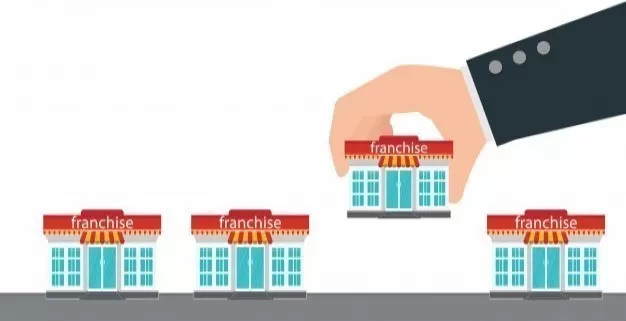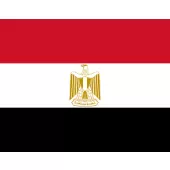
Your guide for Franchising in Egypt!
Do you wish to know more about franchising in Egypt? here below will try our best to clarify the laws governing franchising in Egypt.
Franchising in Egypt
Due to the increasing number of consumers in the modern age and their trust in the branded products and services, franchising is one of the greatest growth strategies ever to attract these consumers as it creates promising business opportunities for local investors, particularly in developing countries where market saturation has not been reached yet.
In this article we will share some insights on how the Franchise System operates in Egypt including current market activity; regulation of franchising; contractual issues relating to franchising agreements; intellectual property; real estate; competition law; employment issues; dispute resolution; exchange control and withholding; and proposals for reform, as follows:
(1)-Definition of franchising
According to the definition stated by the Egyptian Franchise Development Association (“EFDA”), franchising is a method of distributing products and services. At least two levels of people are involved in the franchise system:(1) the franchisor, who lends his trademark or trade name and a business system; and (2) the franchisee, who pays a royalty and often an initial fee for the right to do business under the franchisor’s name and system.
Technically, the contract binding the two parties is the “Franchise,” but that term is often used to mean the actual business that the franchisee operates.
(2)- Legal Framework
Currently, there is no specific definition of the term franchising and/or franchise under Egyptian law; as Franchise agreements are not regulated under Egyptian law. However, the applicable law is usually the law that bears the closest relationship to the provisions of the franchise agreement, which in the case of franchises is generally:
- Trade Law no. 17 of year 1999 (“Trade Law”).
- Commercial Agency Law no. 120 of year 1982 (“Agency Law”).
The definition of the transfer of technology contract under the Trade Law is considered the closest to a definition of a transfer agreement. It provides that a transfer of technology of contract is an agreement in which the supplier of technology undertakes a transfer agreement of technical knowledge, in return for monetary compensation to the importer, who will use the technical information provided by the supplier for the: Production or development of a specific commodity; Installation or operation of machines or equipment and the provision of services. However, the mere sale, purchase, lease or rental of commodities or trademarks is not considered to be a transfer of technology, unless it is set out as part of, or in relation to, a transfer of technology contract (Article 73, Trade Law).
However, the Egyptian Franchise Development Association's (EFDA's) Code of Ethics[1] is relevant, as it attempts to promote ethical franchising. The Code requires EFDA members to comply with ethical provisions and aims to establish the framework for the implementation of best practices to the franchise relationships and activities of the EFDA members. The Code is self-regulatory and not intended to replace any Egyptian legislation that may apply to the franchise business but rather to support full compliance with, and vigorous enforcement of, all applicable laws and regulations. In addition, the Code is not intended to establish standards to be applied by third parties such as courts.
It is worth to mention that there were attempts taken by the Egyptian Industrial Union in 2008 to put forward a draft for a law regulating the franchise agreements in Egypt and there was a draft that was presented to the Parliament but till now there is no news on its current status and no proposals have yet been made.
(3)- Regulatory Framework
There is no specific regulatory authority responsible for enforcing franchising requirements in Egypt. However, Egypt's Franchise Development Association, a NGO and a non-profit organization representing and serving the franchise industry in Egypt. It was formed in 2001 (registered by no. 518/2001 as per law No. 32 for year 1964) to encourage and promote entrepreneurship through franchising, is in charge of arranging the process for different entities to obtain commercial franchises. Its objectives, as stated on their website, are to:
- Increase the awareness of the "franchise form" of doing business.
- Develop the technical know-how of franchising among local franchisors.
- Provide a database of the franchise industry parties.
- Facilitate liaison between all stakeholders in the franchise industry, that is, financial institutions, governmental institutions, franchisors, and potential investors.
- Match-make franchisors with potential investors from a local and international stand point.
Also, it carries out certain activities such as:
- Develop workshops and seminars tailored to meet the needs of the franchise industry stakeholder;
- Hold the annual Franchise Conference held in parallel with MIFE, attended by renowned world speakers in the franchise field;
- Hold the annual Middle East & North Africa International Franchise Exhibition (MIFE); and
- Publish the annual "Franchise Egypt" magazine Offer consultancy services.
(4)- EFDA’s co-operation with the International Franchise Association (IFA) in Egypt[2]
The International Franchise Association (IFA) is a non-profit trade association of franchisors, franchisees, and suppliers. Founded in 1960, the IFA’s office is based in Washington. It promotes good franchising practices by ensuring all members follow a rigid code of ethics. The IFA helps to support and develop the franchise industry by organizing events and meetings, publishing articles and books, and by its online database.
The IFA values its longstanding relationship with the Egyptian Franchise Development Association (EFDA) since its establishment. Through the World Franchise Council, both the EFDA and IFA have worked together to support the development and protection of franchising to promote a collective understanding of best practices in fair and ethical franchising across the globe.
The EFDA and IFA’s relationship is growing still deeper moving into 2019; with IFA’s support of the Legal Symposium being mounted by EFDA and the EFDA’s adoption of the IFA’s Certified Franchise Executive (CFE) program. This program aims to enhance the professionalism of franchising by certifying the highest standards of quality training and education. Meeting the requirements of the program and completing its course of study; this leads to the Certified Franchise Executive TM (CFE) designation. In addition, the CFE program offers a wide range of continuing education programs for professional development.
Franchise agreement
As we mentioned above that there is no specific law regulates franchising in Egypt. Accordingly, the franchise agreement is subject to the general provisions governing formation of contracts provided for in the Civil Code no. 131 of year 1984, in addition to the requirements mentioned in Trade Law No. no. 17 of year 1999. Accordingly the franchisor must abide by the rules and provisions of the trade law in regards with the “Transfer of Technology” (Articles from 72 to 87), as follows:
(a)- Obligations of the Franchisor:
The franchisor is subject to general or formal pre-contract disclosure requirements regarding the certain information that the supplier (“Franchisor”) of the technology to the importer (“franchisee”) must disclose. Such information must be stated in the contract or during the negotiations preceding its conclusion. Information that must be included in the contract or stated during the negotiations is:
- The risks that might occur from using the technology, in particular, those connected with or that may have an impact on the environment, public health, the safety and security of lives, or property and funds. The supplier will be required to demonstrate to the importer the methods that the supplier is aware of to avoid the risks that may occur through utilizing the technology.
- Judicial actions and other obstructions that might impede the use of technology-related rights, particularly those connected with letters patent.
- Provisions of the local law concerning required authorization for the export of technology.
Moreover, the Franchisor must submit to the Franchisee the following:
- Data, information, and other technical documents as required installing and using the technology.
- Necessary technical services that the importer requests for the operation of the technology, particularly expertise and training.
- The supplier must inform the importer of improvements that the supplier might introduce to the technology during the validity period of the contract and transfer these improvements to the importer if requested.
(b)- Obligations of the franchisee
The importer (“Franchisee”) must:
- Employ workers with a measure of technical skill, and have recourse to technical experts whenever necessary.
- Inform the supplier of the provisions of national laws connected with the import of technology.
- Pay the charges for the technology and the improvements introduced to it, at all the times and places agreed.
- Maintain the confidentiality and secrecy of the technology he or she may obtain,
- Not assign the technology that he has obtained to a third party before getting the approval of the supplier.
(C )- Formalities
The transfer of technology chapter of the Trade Law specifies some requirements that may be used in a franchise agreement, as follows:
(I)- The technology transfer contract must be concluded in writing; otherwise it is null and void.
(II)- The contract must comprise a statement of knowledge of elements and ancillary matters to be transferred to the importer of the technology, these can be included in appendices attached to and which form an inseparable part of the contract, including feasibility studies; instructions; designs; engineering drawings; charts; pictures; computer software; and Know-how defining documents.
(D)- Term and Termination
It is well known that the Civil Code provides that the parties are free to agree on terms, including the duration of the agreement on a condition that the terms do not conflict with public policy and morals.
Franchise contracts
As per article 157(1) of the Civil Code, in bilateral contracts, if one of the parties does not perform his or her obligation, the other party, after notifying the debtor, can demand the specific performance of the contract or its rescission or compensation in either case, if justified. The party requesting the termination must have performed his or her obligations or at least be willing to perform them.
As per article (86) of the Trade Law, if no breach has occurred, the Egyptian Trade Law provides that a technology transfer agreement can be terminated after the lapse of five years from the date it was agreed, on the parties' mutual consent.
As for the contractual penalties, they are only enforceable on the parties' agreement in the form of a penalty clause or agreed compensation, as liquidated damages are not regulated in Egyptian law.
( E)- Governing Law and Dispute Resolution
As per the Civil Code, Local courts recognize a choice of foreign law, provided that it does not contradict with any Egyptian public order and public morality rule. Disputes concerning technology transfer agreements must be subject to Egyptian law. If a dispute arises from a franchise agreement, parties usually tend to use arbitration.
In international franchise agreements, when the franchisor is a non-Egyptian entity, the franchisee is an Egyptian entity, and the franchise agreement is executed in Egypt, there are no restrictions on assigning jurisdiction to a foreign court in the case of a dispute. There is also no restriction on applying a foreign law to the franchise agreement provided that the parties agreed on this provision in the franchise agreement
However, Egyptian courts retain jurisdiction over disputes arising from a technology transfer agreement. The dispute can be settled amicably or via arbitration to be held in Egypt according to the provisions of the Egyptian law. However, the dispute must be decided according to the provisions of Egyptian law, and all parties must be in agreement, otherwise the contract is null and invalid.
(6)- Intellectual Property
The general provisions regarding the protection of intellectual property provide that the franchisee may use the IPRs, however, the ownership of the IPRs still be of the franchisor.
[2] Egyptian Franchise Development Association (EFDA): www.efda.org.eg/

 English
English
 العربية
العربية
 中文语言
中文语言
 русский язык
русский язык
 Le français
Le français
 Española
Española


